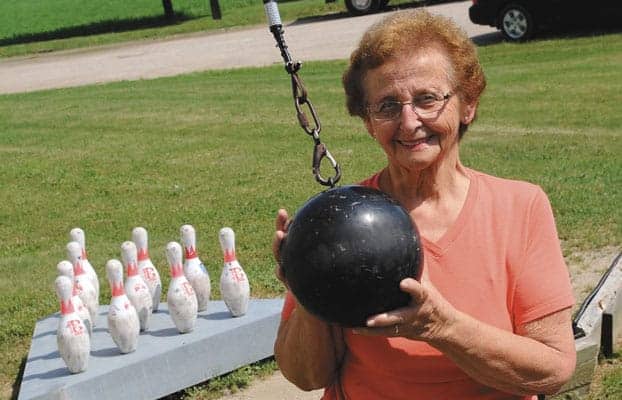Stopping crime begins with stopping the cause of crime – that’s the message that defines the Waterloo Region Crime Prevention Council, according to a presentation to Wellesley council on Tuesday night. Outlining the WRCPC’s accomplishments as it enters its the fourth and final year, community representative Frank Johnson delivered a presentation amounting to a greatest hits summation of the group’s anti-crime initiatives.
Among the most visible programs has been THINK!, a social media etiquette campaign the group has introduced in the region’s schools (the acronym, which kids are encouraged to ask themselves before tweeting anything, stands for “is it True, Hurtful, Illegal, Necessary, Kind?”)
Some initiatives have been focused more on fostering a positive community environment than specifically eradicating crime, including the Volunteer Today program (pairing youth with positive adult role models) and the “Say Hi” campaign, which encourages students to get to know their peers by saying “hi.” The WRCPC will be expanding this initiative to encompass an annual “Say Hi Day,” scheduled for September 26.
Other projects of varying scale have included the Waterloo Region Anti-Graffiti Alliance, a “Smart on Crime” series on Rogers TV’s Talk Local, and Jane’s Walk neighbourhood walks (named for the late community activist Jane Jacobs).
Johnson identified substance abuse as a key dilemma in every town, pointing to statistics that half the cost of the criminal justice system is related to alcohol and drugs, and that one third of students have experimented with prescription pills. He pointed to the “Clear Out Your Medicine Cabinet” program, which allows people to return their unused prescription drugs.
Also addressing council was Irene O’Toole, who explained the Friends of Crime Prevention program and encouraged councilors to join at the PreventingCrime.ca website. Members of this program are invited to volunteer at events, write blogs posts, organize community events, or simply follow the WRCPC on Facebook.
“Crime prevention really is an attitude,” said O’Toole. “The idea that it takes a village to raise a child … and it takes many people to create a safe community as well.”
She added, “Becoming a friend [of crime prevention] doesn’t mean you have to attend meetings. In fact, we’d prefer people get involved in their community.”
Following the presentation, Mayor Ross Kelterborn praised the WRCPC’s efforts, saying, “I appreciate your slogan, ‘Before it Happens.’ That’s the big thing in crime prevention at any level.”
Coun. Herb Neher asked if more measures could be introduced to educate parents on crime and drug abuse. “Most parents really don’t know what signs to look for – what are the cues, what are the signals?” he said. Neher suggested that schools provide students with educational materials on drug abuse to have their parents read and sign.
O’Toole also commended council for holding community events that foster a sense of local pride. “These are huge crime prevention initiatives, because all those people that were involved in them could very well have been breaking a window. … At a municipal level, a lot of crime prevention is happening, but we’re not necessarily putting that label on it.”








